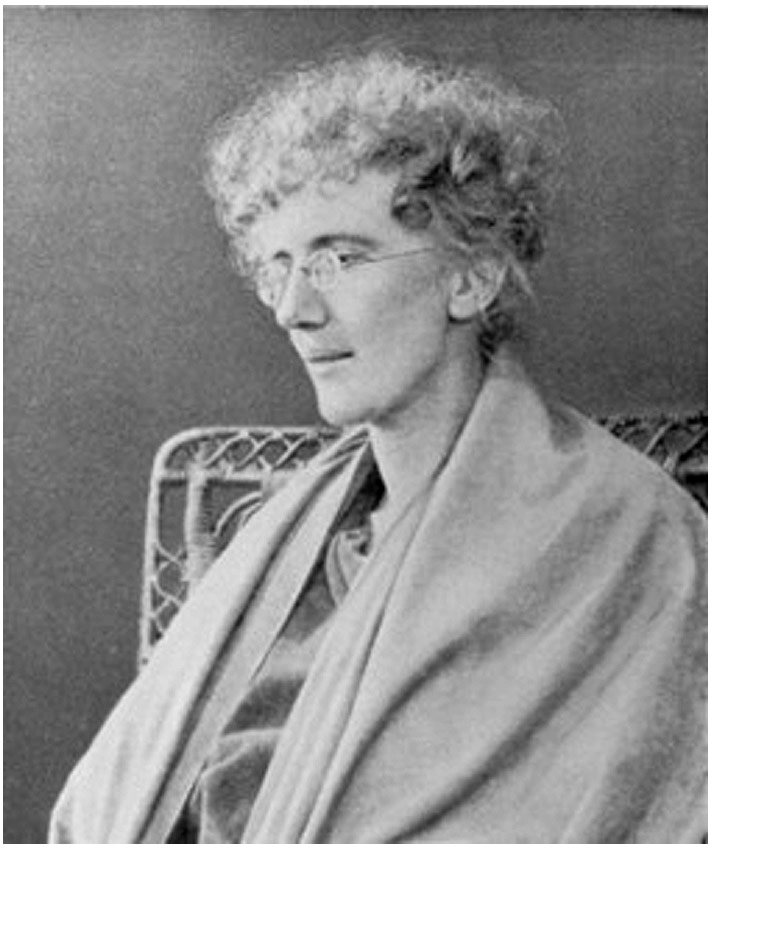
The Power of Poetry
Salford Suffragist: Eva Gore Booth 1870 – 1926
Eva Gore-Booth was born in County Sligo, Ireland, the third of five children, to Sir Henry and Lady Georgina Gore-Booth of Lissadell. Gore Booth became aware of her wealth and privilege at an early age, especially during the winter Irish famine of 1879 where starving tenants would come to her house begging for food and clothing. This instilled a sense of being ‘haunted by the suffering of the world and had a curious feeling of responsibility for its equalities and injustices’. The seeds were sown for her passion for women’s suffrage and trade unionism when attending a school of needlework led by her mother, where local women could sell there work for a regular wage.
Gore-Booth’s writing talent was noticed by William Butler Yeats and he gave her several books to read in an effort to help polish her craft. “I’m always ransacking Ireland for people to set at writing Irish things,” Yeats wrote in an 1895 letter. “She does not know that she is the last victim—but is deep in some books of Irish legends I sent her and might take fire.” Indeed, in spite of the fact that Gore-Booth lived most of her adult life away from Ireland, many critics have maintained that her work is a good representation of Irish literature of the period.
When traveling with her mother in Venice, Gore-Both fell ill with a respiratory condition and when recovering in a villa of writer George MacDonald she met Esther Roper, an English woman who would become her lifelong companion. Both went to live in Manchester and began actively campaigning for women’s rights.
Gore-Booth became a member of the executive committee of the National Union of Women’s Suffrage Societies, co-secretary of the Manchester and Salford Women’s Trade Union Council and a member of the Labour Party. Gore-Booth and other suffragists committed to using constitutional campaign methods for equal suffrage. These were expressed in an essay, ‘The Women’s Suffrage Movement Among Trade Unionsts’ to the Case for Women’s Suffrage. In 1902 she campaigned for Labour candidate David Shackleton who promised to support women’s suffrage. Shackleton however, did not keep his promise. This led to the founding of the Lancashire and Chesire Women Textile and Other Worker’s Representation Committee. In both 1906 and 1909 they put forward their own suffrage supporting candidate who were defeated. This did lead to feelings of hopelessness depicted in two poems, 'Women's Trades on the Embankment' and 'A Lost Opportunity'. She did not give up however, and showed her support for the New Consitutional Society for Women’s Suffrage, attended meetings of the Fabian Women’s Group and was a member of the deputation representing working women that called upon Lloyd George not to drop the Conciliation Bill that would lead to expanding women’s suffrage. In 1911 Gore Booth even worked in the coal mines to experience working conditions for women herself. She also started Urania, a journal challenging gender and relationship norms.
In the build up and duration of World War I Gore Booth was heavily involved in the British Peace movement. In 1916, she travelled to Dublin to campaign against her sister, Constance Markievicz, receiving the death penalty for her instrumental role in the 1916 rising. Gore Booth was greatly disturbed by visiting her sister in solitary confinement and this was expressed in the poetry she wrote at the time. This motivated her to campaign for prison reform and the abolition of the death sentence. Markievicz went on to be the first woman elected to the House of Commons in 1918 after some women were awarded the vote. She however did not take her seat in the House of Commons due to her party’s boycott of the British Government.
Eva Gore Booth’s name and picture, alongside 58 other women’s suffrage supporters are featured on the plinth of the statue of Milicent Fawcett in Parliament Square, London, unveiled in 2018.
Useful Links
(We take no responsibility for links to external websites. We have no control over the nature, content and availability of external sites. The inclusion of any links does not necessarily imply a recommendation or endorse the views expressed within them.)
